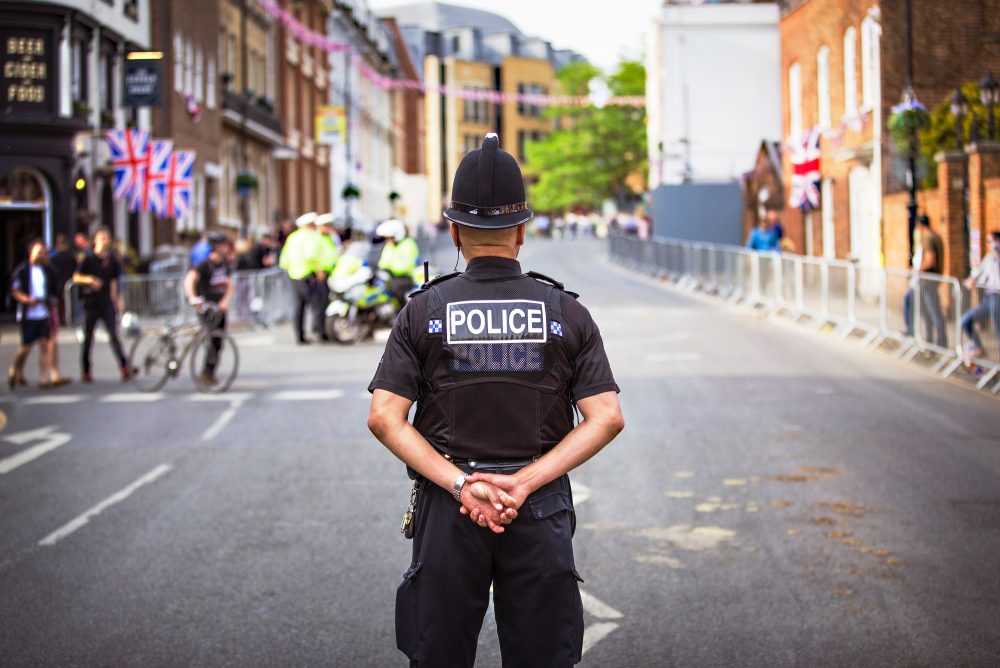The cosmetics company Lush is facing a backlash on Twitter after launching a campaign that criticises the actions of some undercover officers. What role do human rights play in the debate? Dylan Brethour takes a look.
Lush’s #SpyCops campaign is proving that Twitter is still the best place on the internet to have an argument.
According to Lush, their controversial campaign was intended to draw attention to an inquiry launched in 2015 by Prime Minister Theresa May during her time as Home Secretary. The ongoing inquiry looks at the actions of some undercover police officers who allegedly spied on political groups, deceived women into relationships, and assumed the identity of dead children.
While Police Chiefs have apologised unreservedly to some of the women involved, many observers feel there is more to be done. Lush’s campaign has highlighted public divisions over police accountability, whilst also bringing important questions on the extent of police powers into the spotlight.
So, what is #SpyCops, and does it really have anything to do with human rights?
What is The #SpyCops Campaign About?

Image credit: Tachina Lee / Unsplash
The Undercover Policing Inquiry (UCPI) was launched in 2015 in response to alleged abuses of power within the police force. For forty years, beginning in 1968, undercover officers assumed false identities while infiltrating political groups. During this time, some women say they were tricked into sexual relationships with the officers, who they did not know were working with the police.
A gross violation of personal dignity and integrity
In 2015, the Metropolitan Police reached an out of court settlement with 7 women who had been in relationships with the officers. The Met paid an undisclosed amount in compensation and issued an apology, characterising the relationships as wrong and “a gross violation of personal dignity and integrity.”
The inquiry was meant to cast light on who had been targeted and how. It was also meant to address other allegations about the behaviour of the police, including accusations that the officers had stolen the names of dead children and spied on the parents of murdered teenager Stephen Lawrence.
What Makes this Campaign so Controversial?

Image credit: Vera Arsic / Pexels
The #SpyCops campaign has been heavily criticised, with many observers accusing Lush of vilifying police officers. Current Home Secretary Sajid Javid took to Twitter to condemn the company’s tactics, tweeting that it was, “a public advertising campaign against our hardworking police.”
Others have rallied to #SpyCops’ defence, arguing that it draws attention to important ethical issues within the police force. A letter defending the campaign has been signed by 67 individuals, including politicians, lawyers, and victims of police deception.
Never thought I would see a mainstream British retailer running a public advertising campaign against our hardworking police. This is not a responsible way to make a point https://t.co/dZqF3iMN6U
— Sajid Javid (@sajidjavid) June 1, 2018
The letter argues that Lush’s campaign is helping potential victims press for full disclosure about police surveillance. The signatories argue that, “without this full disclosure there is no way of knowing the full extent of what happened during the dark years of this secret policing operation.”
How are Human Rights Involved?

Image Credit: Helena Lopes/ Pexels
In an op-ed for the Guardian, one woman who had been in a relationship with an undercover officer wrote that the experience had violated her human rights. The law at stake is Article 3 of the Human Rights Convention, which states, “No one shall be subjected to torture or to inhuman or degrading treatment or punishment.” The issue hinges on whether the actions of the undercover officers amounted to inhuman or degrading treatment.
As part of the Met’s out of court settlement, assistant commissioner Martin Hewitt stated, “I acknowledge that these relationships were a violation of the women’s human rights, an abuse of police power and caused significant trauma.” However, despite originally being scheduled to finish this year, the UCPI will not deliver its final report until 2023. Until then, the role of Article 3 in the activities of undercover officers has yet to be fully explored by authorities.
There’s no real way to resolve an argument on Twitter beyond closing the tab. However, the Undercover Policing Inquiry is still ongoing. It remains to be seen whether the public debate that’s been sparked by the #SpyCops campaign will influence the findings of the inquiry.







